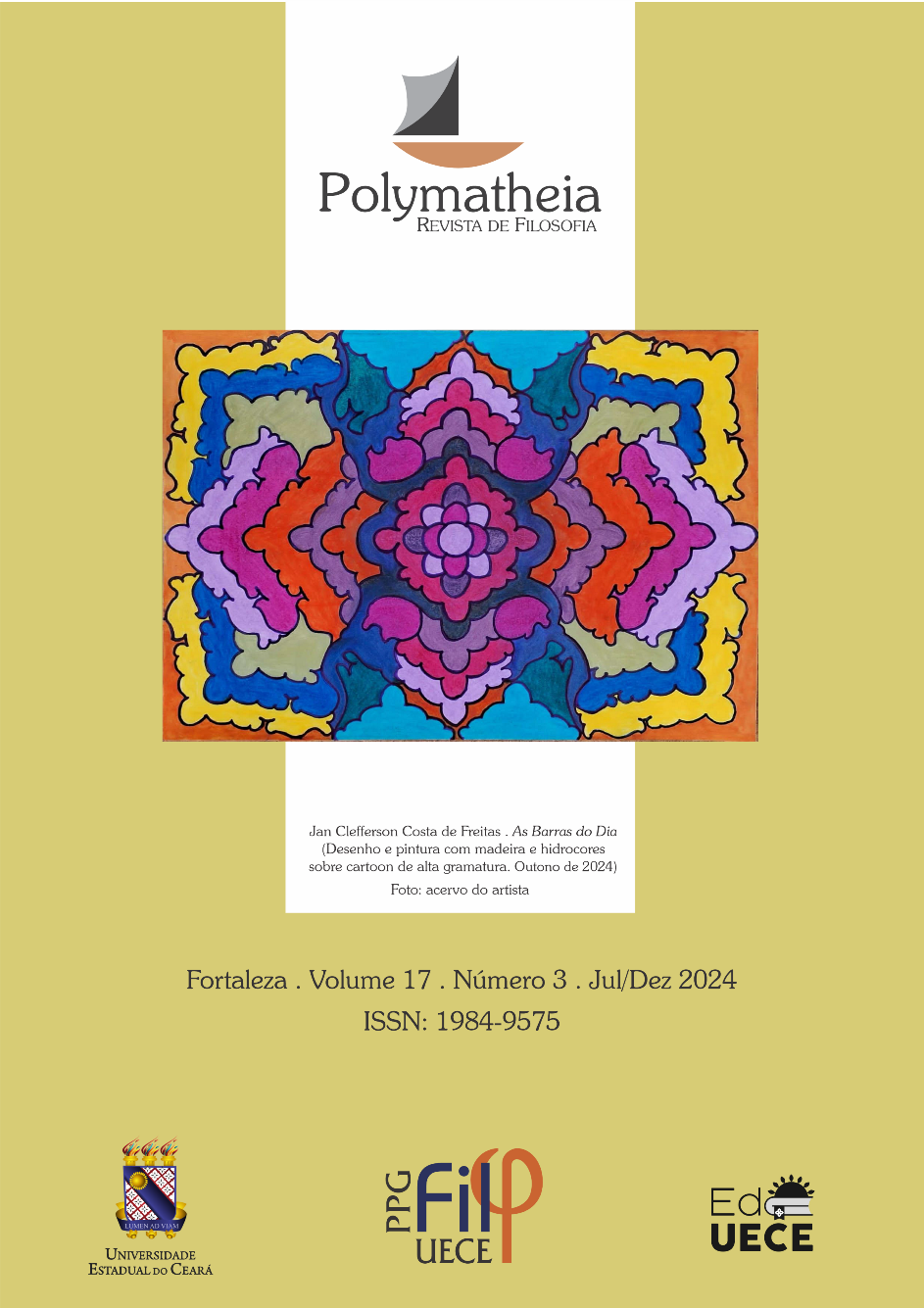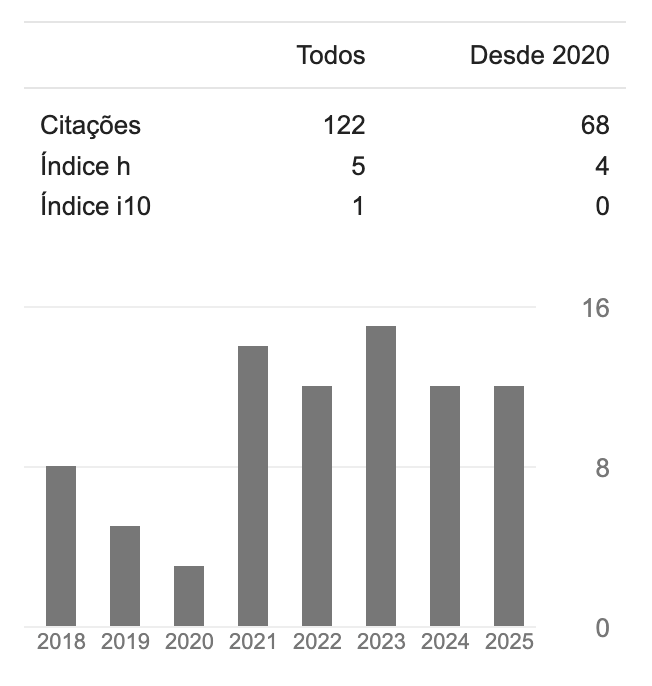COMO PARÂMETROS COMPUTACIONAIS PODEM LIMITAR O ESCOPO DE DECISÕES ÉTICAS EM INTELIGÊNCIAS ARTIFICIAIS?
DOI:
https://doi.org/10.52521/poly.v17i3.14341Palavras-chave:
Filosofia da informação, Ética normativa, Metaética, Inteligência Artificial, Ataques AdversáriosResumo
Os Ataques Adversários (Adversarial Attacks) suscitam discussões e investimentos na área de Tecnologia da Informação. Porém, podem provocar problemas éticos profundos, pois esses Ataques Adversários desencadeiam alucinações em máquinas equipadas com Inteligências Artificiais Generativas por meio da entrada (input) de dados adulterados ou apenas mal interpretados. O objetivo é fazer um levantamento bibliográfico, não somente dos aspectos técnicos, mas também de propostas de implementações éticas em Inteligências Artificiais. Os resultados indicam que os maiores desafios estão envoltos nos possíveis danos irreparáveis decorrentes das distorções que os Ataques Adversários acarretam, exigindo novas formas de interpelar o problema ético em Inteligências Artificiais
Downloads
Referências
ADRIAANS, Pieter. Information. In The Stanford Encyclopedia of Philosophy (Winter 2023 Edition). Edward N. Zalta & Uri Nodelman (eds.). Disponível em: <https://plato.stanford.edu/archives/win2023/entries/information/>. Acesso em: 18 Dez. 2023.
ANGIUS, Nicola; PRIMIERO, Giuseppe; Turner, Raymond. The Philosophy of Computer Science. In The Stanford Encyclopedia of Philosophy (Spring 2021 Edition). Edward N. Zalta (ed.), Disponível em: <https://plato.stanford.edu/archives/spr2021/entries/computer-science/>. Acesso em: 05 dez. 2023.
ARTIFICIAL Intelligence: A modern approach 4th ed. In Berkley.edu. Califórnia, [2023?]. Disponível em: https://aima.cs.berkeley.edu/. Acesso em: 08 Dez. 2023.
ATHALYE, Anish et al. Synthesizing robust adversarial examples. International conference on machine learning. PMLR, 2018. p. 284-293.
AWAD, Edmond et al. The Moral Machine Experiment. Nature. v. 563, 2018, p. 59-64.
BBC. Entenda o escândalo de uso político de dados que derrubou valor do Facebook e o colocou na mira de autoridades. In G1. São Paulo, 20 mar. 2018. Disponível em: <https://g1.globo.com/economia/tecnologia/noticia/entenda-o-escandalo-de-uso-politico-de-dados-que-derrubou-valor-do-facebook-e-o-colocou-na-mira-de-autoridades.ghtml>. Acesso em: 28 Dez. 2023.
BENEVENIDES, Bernardo. Os algoritmos de machine learning. In GEEKHunter, [São Paulo], 2018. Disponível em:https://blog.geekhunter.com.br/aprendizado-de-maquina-e-seus-algoritmos/. Acesso em: 08 Dez. 2023.
BESSEMER VENTURE PARTNERS. Cybersecurity trends in 2024. Disponível em: <https://www.bvp.com/atlas/cybersecurity-trends-in-2024>. Acesso em: 25 out. 2024.
BRINGSJORD, Selmer. GOVINDARAJULU, Naveen Sundar. Artificial Intelligence. The Stanford Encyclopedia of Philosophy (Fall 2022 Edition), Edward N. Zalta & Uri Nodelman (eds.) Disponível em: <https://plato.stanford.edu/archives/fall2022/entries/artificial-intelligence/>. Acesso em: 05 dez. 2023.
BROOKS, David. The Philosophy of Data. New York Times. Nova Iorque, 04 de fev. 2013. Disponível em: <https://www.nytimes.com/2013/02/05/opinion/brooks-the-philosophy-of-data.html>. Acesso em: 05 Dez. 2023.
COITINHO, Denis. Prudent Reflective Equilibrium. Ethics in Progress, v.14, n.1, 2023, p. 46-63.
COLBROOK, Matthew J.; ANTUN, Vegard; HANSEN, Anders C. The difficulty of computing stable and accurate neural networks: On the barriers of deep learning and Smale’s 18th problem. Proceedings of the National Academy of Sciences, v. 119, n. 12, p. e2107151119, 2022.
Comissão Europeia. Orientações éticas para uma IA de confiança. Direção-Geral das Redes de Comunicação, Conteúdos e Tecnologias. Serviço das Publicações: 2019. Disponível em: <https://data.europa.eu/doi/10.2759/2686>. Acesso em 29 Dez. 2023.
DIGNUM, Virginia. Responsible Artificial Intelligence: How to Develop and Use AI in a Responsible Way. Cham: Switzerland, 2019.
DOS SANTOS HASHIMOTO, Caroline Cavilha Cavilha. Dataísmo, a religião do século XXI e sua manifestação do sagrado no filme I Am Mother (2019). Epígrafe, v. 10, n. 1, p. 537-554, 2021.
ETZIONI, Amitai; ETZIONI, Oren. Incorporating Ethics into Artificial Intelligence. The Journal of Ethics. v. 21, n. 4, 2017, p. 403-418.
EVTIMOV, Ivan et al. Robust physical-world attacks on machine learning models. arXiv preprint arXiv:1707.08945, v. 2, n. 3, p. 4, 2017.
HARARI, Yuval Noah. Homo Deus: uma breve história do amanhã. São Paulo: Editora Companhia das Letras, 2016.
KAUFMAN, Dora. Resenha do livro: "Ethics of artificial intelligence", de Matthew Liao. TECCOGS: Revista Digital de Tecnologias Cognitivas, n. 23, 2021.
LEE, Kai-fu. AI superpowers: China, Silicon Valley, and the new world order. Boston: Houghton Mifflin Harcourt, 2018.
LIAO, S. Matthew (Ed.). Ethics of artificial intelligence. Oxford University Press, 2020.
LISBOA, Alveni. O que é um algoritmo? In CANALTECH. [São Paulo], 8 out. 2022. Disponível em: <https://canaltech.com.br/inteligencia-artificial/o-que-e-um-algoritmo-226839/>. Acesso em: 08 Dez. 2023.
MILLER, Alexander. An introduction to contemporary metaethics. Maiden: Polity Press, 2003.
RAILTON Peter. In. LSA Philosophy University of Michigan. Michigan, [2023?]. Disponível em: https://lsa.umich.edu/philosophy/people/faculty/prailton.html. Acesso em: 29 Dez. 2023.
RAILTON, Peter. Ethical Learning, natural and artificial. In: LIAO, S. Matthew (Ed.). Ethics of Artificial Intelligence. New York: Oxford University Press, 2020, p. 45-78.
RAILTON, Peter. Facts, values, and norms: Essays toward a morality of consequence. Cambridge University Press, 2003.
RUSSELL, Stuart J.; NORVIG, Peter. Artificial intelligence a modern approach. London, 2019.
SAVULESCU, Julien; GYNGELL, Christopher; KAHANE, Guy. Collective Reflective Equilibrium in Practice (CREP) and Controversial Novel Technologies. Bioethics, 2021, p. 1-12.
SHAFER-LANDAU, Russ. Moral realism: A defence. Nova York: Clarendon Press, 2003.
SILVEIRA, Paulo Antônio Caliendo Velloso da. Ética e inteligência artificial: da possibilidade filosófica de agentes morais artificiais. Porto Alegre: Edipucrs, 2020.
SULLINS, John. Information Technology and Moral Values. The Stanford Encyclopedia of Philosophy (Fall 2023 Edition), Edward N. Zalta & Uri Nodelman (eds.), Disponível em:<https://plato.stanford.edu/archives/fall2023/entries/it-moral-values/>. Acesso em: 25 nov. 2023.
SZEGEDY, Christian et al. Intriguing properties of neural networks. arXiv preprint arXiv:1312.6199, 2013.
TASIOULAS, John. First Steps Toward an Ethics of Robots and AI. Journal of Practical Ethics, v. 7, n. 1, 2019, p. 61-95.
THOMSON, Judith Jarvis. The trolley problem. Yale LJ, v. 94, p. 1395-1415. 1984.
WANG, Yulong et al. Adversarial Attacks and Defenses in Machine Learning-Powered Networks: A Contemporary Survey. arXiv preprint arXiv:2303.06302, 2023.
WHAT'S is Artificial Intelligence?. In IBM.COM. Disponível em: <https://www.ibm.com/topics/artificial-intelligence>. Acesso em: 05 dez. 2023.
Downloads
Publicado
Como Citar
Edição
Seção
Licença
Copyright (c) 2024 Bruno de Brito Rosa

Este trabalho está licenciado sob uma licença Creative Commons Attribution 4.0 International License.











